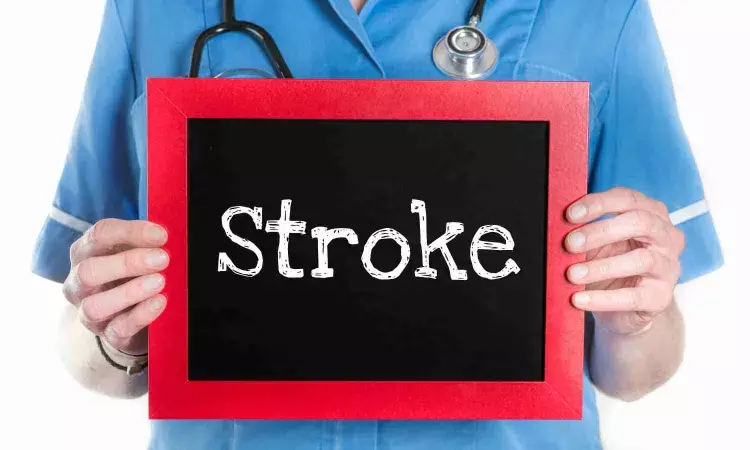- Home
- Medical news & Guidelines
- Anesthesiology
- Cardiology and CTVS
- Critical Care
- Dentistry
- Dermatology
- Diabetes and Endocrinology
- ENT
- Gastroenterology
- Medicine
- Nephrology
- Neurology
- Obstretics-Gynaecology
- Oncology
- Ophthalmology
- Orthopaedics
- Pediatrics-Neonatology
- Psychiatry
- Pulmonology
- Radiology
- Surgery
- Urology
- Laboratory Medicine
- Diet
- Nursing
- Paramedical
- Physiotherapy
- Health news
- Fact Check
- Bone Health Fact Check
- Brain Health Fact Check
- Cancer Related Fact Check
- Child Care Fact Check
- Dental and oral health fact check
- Diabetes and metabolic health fact check
- Diet and Nutrition Fact Check
- Eye and ENT Care Fact Check
- Fitness fact check
- Gut health fact check
- Heart health fact check
- Kidney health fact check
- Medical education fact check
- Men's health fact check
- Respiratory fact check
- Skin and hair care fact check
- Vaccine and Immunization fact check
- Women's health fact check
- AYUSH
- State News
- Andaman and Nicobar Islands
- Andhra Pradesh
- Arunachal Pradesh
- Assam
- Bihar
- Chandigarh
- Chattisgarh
- Dadra and Nagar Haveli
- Daman and Diu
- Delhi
- Goa
- Gujarat
- Haryana
- Himachal Pradesh
- Jammu & Kashmir
- Jharkhand
- Karnataka
- Kerala
- Ladakh
- Lakshadweep
- Madhya Pradesh
- Maharashtra
- Manipur
- Meghalaya
- Mizoram
- Nagaland
- Odisha
- Puducherry
- Punjab
- Rajasthan
- Sikkim
- Tamil Nadu
- Telangana
- Tripura
- Uttar Pradesh
- Uttrakhand
- West Bengal
- Medical Education
- Industry
CPAP treatment lowers mortality in stroke and TIA in patients with sleep disorders: Study

A new study published in the Journal of Stroke and Cardiovascular Disease showed that continuous positive airway pressure (CPAP) has been linked to a lower all-cause death rate in patients with sleep disordered breathing who have had a stroke or a transient ischemic attack (TIA).
The incidence of stroke and transient ischemic attacks is independently associated with sleep-disordered breathing, particularly obstructive sleep apnea (OSA). Chronic systemic hypertension, endothelial dysfunction, hypercoagulability, cardiac arrhythmias, impaired glycemic control that results in diabetes, heart failure, coronary artery disease, and systemic inflammation with elevated levels of inflammatory markers (e.g., VEGR, CRP, IL-6, and TNFα) that lead to atherosclerosis are all possible long-term consequences of OSA.
About 70% of stroke patients have OSA, which is strongly associated with the risk of stroke. Because of the short follow-up period and small sample sizes of earlier studies, it is uncertain if therapy with continuous positive airway pressure lowers the risk of stroke recurrence or death in post-stroke patients. This study examined changes in stroke mortality and recurrence among post-stroke patients with sleep-disordered breathing receiving CPAP in an effort to fill this information gap.
Using data from the Danish National Patient Registry that spanned through 2003 to 2016, this study performed a retrospective cohort analysis encompassing a total of 1821 patients with a history of ischemic stroke or transient ischemic attack (TIA) and sleep-disordered breathing. 3 groups of patients were created which were those who used CPAP, those who did not, and those who did not get any CPAP therapy. They evaluated all-cause mortality during a 14-year follow-up period and the risk of recurrent stroke or TIA over a 5-year follow-up period using Cox hazard regression.
When compared to patients who were classified as not receiving CPAP therapy, CPAP users had a higher survival rate. After controlling for sex, age, and pre-existing comorbidities within 3years (as measured by the Quan-updated Charlson Comorbidity Index), this impact remained. The 3 CPAP groups did not vary in terms of stroke or TIA recurrence.
Overall, the findings of this study suggest that CPAP treatment lowers mortality in stroke and TIA patients who have sleep disorders. This highlights the significance of establishing a routine screening procedure to identify sleep disorders in stroke and TIA patients during the acute, subacute, and rehabilitation phases following a stroke.
Source:
Suusgaard, J., West, A. S., Ponsaing, L. B., Iversen, H. K., Rauen, K., & Jennum, P. J. (2025). Stroke recurrence and all-causemortality in CPAP-treated sleep-disordered-breathing patients. In Journal of Stroke and Cerebrovascular Diseases (Vol. 34, Issue 2, p. 108204). Elsevier BV. https://doi.org/10.1016/j.jstrokecerebrovasdis.2024.108204
Neuroscience Masters graduate
Jacinthlyn Sylvia, a Neuroscience Master's graduate from Chennai has worked extensively in deciphering the neurobiology of cognition and motor control in aging. She also has spread-out exposure to Neurosurgery from her Bachelor’s. She is currently involved in active Neuro-Oncology research. She is an upcoming neuroscientist with a fiery passion for writing. Her news cover at Medical Dialogues feature recent discoveries and updates from the healthcare and biomedical research fields. She can be reached at editorial@medicaldialogues.in
Dr Kamal Kant Kohli-MBBS, DTCD- a chest specialist with more than 30 years of practice and a flair for writing clinical articles, Dr Kamal Kant Kohli joined Medical Dialogues as a Chief Editor of Medical News. Besides writing articles, as an editor, he proofreads and verifies all the medical content published on Medical Dialogues including those coming from journals, studies,medical conferences,guidelines etc. Email: drkohli@medicaldialogues.in. Contact no. 011-43720751


